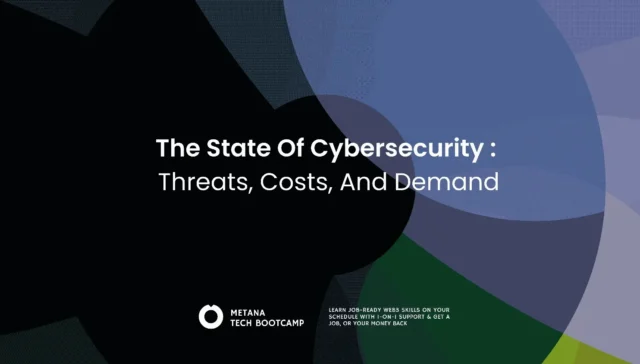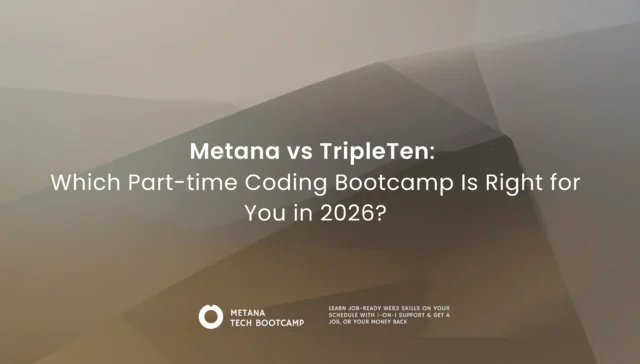Can you really build a career in tech without a computer science degree? The short answer is yes, absolutely. Thousands of professionals are working as software engineers, data analysts, web developers, and IT specialists without ever sitting in a CS lecture hall. The truth is that skills, projects, and proof of ability matter far more than a diploma.
This guide will show you exactly how to do it: the roles you can target, the best pathways into tech, and the strategies that will make you stand out even without a degree.
Quick Takeaways
- You can build a tech career without a CS degree — skills matter more than diplomas.
- Web development, software engineering, data science, cybersecurity, and IT are all open to non-degree candidates.
- Salaries are competitive, often crossing six figures.
- Portfolios, certifications, and networking replace the credibility of a degree.
- Success requires consistent effort, strong projects, and lifelong learning.
Why You Don’t Need a CS Degree Anymore
Employers Care About Skills, Not Credentials
Tech is one of the fastest-moving industries in the world. By the time a student graduates, the languages and frameworks they learned may already be outdated. Employers know this, and they’ve shifted focus from credentials to real-world ability.
Google, Apple, and IBM no longer require degrees for many positions. Instead, they test candidates with coding challenges, portfolio reviews, and interviews. If you can solve problems, you’re qualified.
The Talent Shortage Works in Your Favor
The demand for programmers, analysts, and cybersecurity experts is far greater than the number of CS graduates. Companies simply can’t afford to ignore skilled self-taught professionals or bootcamp graduates.
Alternative Learning Paths Are Proven
Bootcamps, online courses, and apprenticeships are producing job-ready professionals in months. Employers now recognize these alternatives as valid routes into the industry.
What Jobs Can You Get Without a CS Degree?
Software Engineering
Plenty of developers including software engineers start out self-taught or through bootcamps. If you can pass technical interviews and showcase strong projects, companies will take you seriously.
Web Development
Web dev is one of the most accessible entry points. Learn HTML, CSS, JavaScript, and frameworks like React or Vue, and you’ll be qualified for freelance gigs or junior roles.
Data Analytics and Data Science
With Python, SQL, and data visualization skills, you can move into analytics roles. Add machine learning libraries later to push toward data science positions.
Cybersecurity
CyberSecurity is surely exploding as a field. Many entry-level roles only ask for certifications like CompTIA Security+ or CEH, making it accessible without a degree.
Cloud, DevOps, and IT
With AWS, Google Cloud, or Azure certifications, you can qualify for cloud support and DevOps jobs. IT support and system administration are also common entry paths.
How to Enter Tech Without a Degree
Self-Taught Route
If you’re disciplined, you can teach yourself with free resources. Platforms like FreeCodeCamp, The Odin Project, and MIT’s CS50 cover everything from basics to advanced topics. Build small projects early and grow your portfolio as you learn.
Coding Bootcamps
Coding Bootcamps compress training into three to six months, focusing on hands-on projects and career support. They cost a fraction of a degree and are designed to help you land a job quickly.
Apprenticeships and Internships
Many companies now run apprenticeship programs specifically for non-degree candidates. You earn while you learn, gaining real experience that employers trust. Open-source internships also give you mentorship and credibility.
Building Credibility Without a Degree
Create a Strong Portfolio
Your portfolio is your diploma. Aim for three to five substantial projects that demonstrate different skills — a web app, an API, a data dashboard. Host them on GitHub and deploy live for recruiters to explore.
Earn Certifications That Count
Certifications like AWS Cloud Practitioner, Google Data Analytics, and CompTIA Security+ prove you’ve mastered industry tools. They won’t replace experience, but they build trust with employers.
Develop Your Online Presence
Write about your learning journey on LinkedIn, publish technical blogs, and contribute to GitHub. When recruiters search your name, they should find evidence of skill, not just a blank profile.
Network Like It’s Your Job
Connections often open more doors than applications. Attend meetups, join online communities, and engage with peers. Relationships lead to interviews.
The Skills You Must Master
Programming Languages
Focus on Python and JavaScript, which dominate web, data, and automation. Add SQL for databases, and consider Java or C# for enterprise roles.
Computer Science Fundamentals
Even without a degree, you should know algorithms, data structures, and basic operating system concepts. Harvard’s CS50 is a free, world-class resource for this.
Soft Skills
Communication, collaboration, and problem-solving are consistently ranked as top hiring criteria. They often tip the scale more than technical tests.
Mistakes to Avoid
- Chasing certificates without projects: Employers want proof of application. Always build while you learn.
- Neglecting networking: Submitting hundreds of resumes rarely works. Building connections does.
- Generic resumes: Tailor your CV to each job and highlight impact, not just skills.
- Expecting instant results: Most people need 6–18 months of consistent effort. Patience and persistence are part of the process.
Growing a Career Without a Degree
Getting your first role is just the beginning. Long-term success comes from staying curious and adaptable.
- Keep learning new tools, languages, and frameworks.
- Upskill into high-demand areas like AI, cybersecurity, or cloud.
- Take on leadership and mentorship opportunities.
- Stay active in communities to keep your network strong.
Your degree status will matter less and less as your years of experience grow.
Bottom Line
The myth that you need a computer science degree to work in tech is outdated. Employers are desperate for skills, not diplomas. By building a portfolio, earning relevant certifications, networking strategically, and committing to continuous learning, you can launch a successful, well-paid career in technology without ever stepping into a university CS classroom.
FAQs

Can I become a software engineer without a CS degree?
Yes, you can become a software engineer without a CS degree. Many developers start by teaching themselves programming or attending coding bootcamps. Employers often focus on portfolios, real-world projects, and technical interviews instead of diplomas.
What tech jobs don’t require a computer science degree?
There are many tech jobs without a computer science degree, including web development, data analytics, cybersecurity, IT support, DevOps, and quality assurance. These roles often value hands-on skills, certifications, and project experience more than formal education.
How long does it take to build a coding career without a degree?
Most people build a coding career without a degree in 6 to 24 months. The timeline depends on how much time you dedicate to learning, building projects, and networking. Bootcamp graduates may land jobs in under a year, while self-taught programmers may take longer but still succeed with persistence.







